In its annual Earth Month event on April 15, the Office of Sustainability Initiatives (OSI) celebrated a year of contributions to campus sustainability efforts by announcing this year’s recipients of the Sustainability Lifetime Achievement Awards, the Robert S. Hascall Sustainability Innovator Awards and the Outstanding Sustainability Representative Award.
The second-annual Sustainability Lifetime Achievement Award celebrates longtime Emory faculty and staff who have recently retired or who passed away in the previous year. The Robert S. Hascall Sustainability Innovator Awards are presented to Emory University, Oxford College and Emory Healthcare faculty, staff and students for their leadership and dedication in advancing Emory’s sustainability through inspiring research, academics, operations and community building. Since 2010, an Outstanding Sustainability Representative has also been recognized for their contributions in raising awareness and advocating for sustainable changes within their school or department.
“In honor of Earth Day 2022, we are excited to celebrate phenomenal faculty, staff and students for their creativity and commitment to enacting sustainable change in the Emory community,” says Ciannat Howett, associate vice president of sustainability, resilience and economic inclusion. “They have overcome the challenges of the pandemic in a time when dedication to sustainability and social justice is more important than ever. Emory’s progress toward its institutional sustainability goals would not have been possible without these sustainability innovators and leaders.”
Sustainability Lifetime Achievement Awards
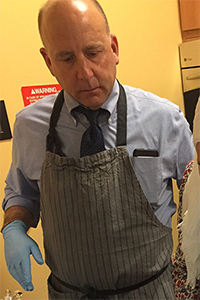 Dave Furhman
Dave Furhman

Senior director of finance, administration and operations for Campus Life
Furhman, who has been a tireless and creative advocate for sustainable food systems, is retiring in May 2022 after a long career of leadership in Emory Dining and Operations.
His deep knowledge; compassion for all employees, students and farmers; and his bold vision for Emory have combined to build a remarkable record of innovation. Furhman’s work has made Emory Dining a national model for sustainability, and he was instrumental in helping Emory achieve its gold sustainability rating. Furhman has been a mentor to all on the Sustainable Food Committee and has brought his ethical commitments to the highest levels of the administration.
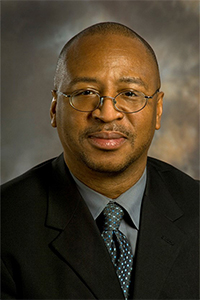 Adrian Jackson
Adrian Jackson

Former associate general counsel, Office of General Counsel
Jackson, who passed away in 2021, made significant and lasting contributions to Emory’s sustainability initiatives during his tenure. Jackson guided Emory on legal issues related to sustainability, including the WaterHub — an award-winning water reclamation system that is the first of its kind in the U.S. He also led the contract negotiations for Emory’s first solar installations under Georgia’s Solar Energy Procurement Agreement legislation.
With Jackson’s legal talent, intelligence, knowledge and patience, Emory developed a nationally important and award-winning Office of Sustainability Initiatives. But Jackson’s legacy is more than a list of accomplishments. As a person of deep personal integrity, kindness and love, he brought joy and enriched the lives of everyone with whom he worked. Jackson’s Lifetime Achievement Award will be on prominent display in Emory’s WaterHub so that the thousands of visitors to the facility will know about his contributions to the Emory community.
Faculty Sustainability Innovators
 David Lynn
David Lynn

Asa Griggs Candler Professor of Chemistry, Emory College of Arts and Sciences
Lynn, as senior adviser to the Resilience and Sustainability Collaboratory (RSC) at Emory, helped launch a new and exciting interdisciplinary collaboration among faculty at Emory working at the intersection of social justice and climate change. Lynn has been especially helpful in guiding corporate partnerships and in providing connections with community partners, such as the Atlanta Science Festival and arts organizations locally and nationally. Lynn’s unflagging optimism, energy and hard work have been pivotal in the growth of the RSC to date.
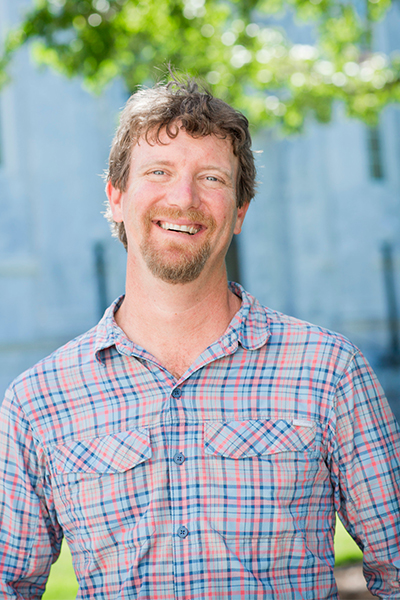 Daniel Parson
Daniel Parson

Farmer and educator, Oxford College Organic Farm
Parson is an award-winning farmer-educator whose perseverance, agricultural and scientific knowledge, and incredibly hard work led to fulfilling the dream of an organic farm at Emory, which was an important pieces of Emory’s first 2005 Sustainability Vision. Thanks to his leadership and guidance, the Oxford Organic Farm has achieved national recognition as an outstanding model for a campus farm.
Parson and his team produce food for a Community-Supported Agriculture (CSA) weekly subscription program, grow produce for the Oxford and Emory Dining programs and run a hands-on experience for students to learn about food and reconnect with the earth. Parson has fulfilled Emory’s goal of connecting the operations of the farm to the curriculum through courses with multiple faculty members in sociology, anthropology, economics, biology and philosophy, thereby deeply enriching the student experience for countless Oxford and Emory College students. Recently, Parson helped OSI develop its partnership with The Conservation Fund for the Working Farms Fund, which aids and protects farmers in acquiring land in the metro-Atlanta area.
Staff Sustainability Innovators
 Alan Anderson
Alan Anderson

Assistant vice president, University Partnerships
In his relatively short time at Emory, Anderson has developed powerful and important relationships for Emory in the greater Atlanta community. Anderson partnered with OSI as co-chair of the Diversity, Equity and Inclusion Strategic Framework for Civic and Community Partners and skillfully led a group of influential social justice leaders in a candid and helpful assessment of Emory’s progress and failings in terms of its relationship with the Atlanta community. Anderson navigates these conversations in a way that builds trust and reflects the very best of Emory. Similarly, Anderson has been an invaluable partner in establishing the new Atlanta Anchor Collaborative between Emory and the Atlanta Wealth Building Initiative, which seeks to use Emory’s purchasing power, employment opportunities and educational resources to close the racial wealth gap in Atlanta.
 Lucy Williams
Lucy Williams

Program manager, Planning, Design and Construction
Williams guided Emory in installing solar panels that will ultimately produce 10% of Emory’s peak energy demand using Georgia’s relatively new Solar Energy Procurement Agreements. Williams has led multiple complex and dynamic projects with a positive attitude and exceptional skill. She took over much of the work of Joan Kowal, former senior director of energy strategy and utilities, to bring home the installation of the solar panels and help Emory achieve its self-generation and renewable energy goals.
Emory Healthcare Sustainability Innovators
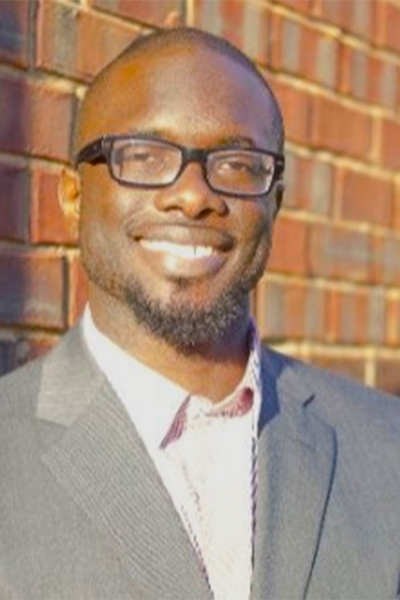 Joseph Abdallah
Joseph Abdallah

Director of hospital procedural operations, Emory University Orthopaedics and Spine Hospital
Abdallah led and executed a pilot program to collect previously unrecyclable plastic waste from operating rooms and perioperative areas at Emory University Orthopaedics and Spine Hospital. This change allowed Emory to test its collection and disposal model and forged a new partnership with private industry that is seeking a circular supply chain for materials used to make medical products.
 Samantha Smith
Samantha Smith

Nurse clinical II, Emory University Hospital
Smith, who works in one of Emory’s clinical research centers, took it upon herself to collect and redistribute unused test kits to other labs that could use them. She also collected plastic film from the clinic to recycle through Hefty’s Orange Bag Program, and she personally delivered the materials to Atlanta’s Center for Hard to Recycle Materials for recycling.
Graduate Student Sustainability Innovators
Lisette Corbin, Hannah Hoff and Alison Smith
Emory University School of Medicine
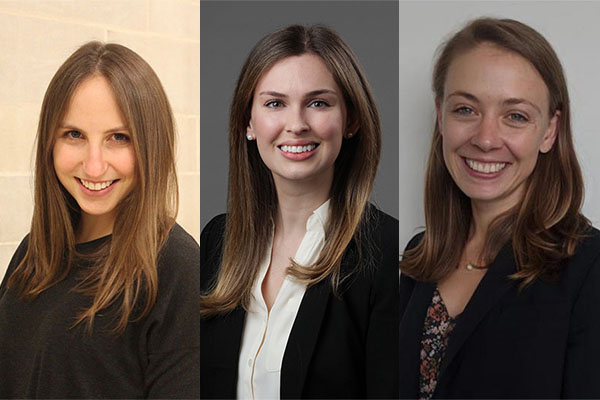
In addition, Smith successfully nudged health care leadership to switch from disposable isolation gowns to reusable ones during the COVID-19 pandemic, launching Emory Healthcare’s journey toward reusable gowns across the system.
Undergraduate Student Innovators
 Nick Chang
Nick Chang

Emory Ecological Society
Chang, who just completed his second year as an Emory College student, quickly and thoughtfully grew his leadership and public service to Emory to affect institutional and ecosystems change. Chang is an active student leader, who, among many things, created the Emory Ecological Society, volunteers in the educational gardens, works as an OSI intern and asks tough questions in the University Senate’s Committee on the Environment. He also contributes to symposia, biodiversity tracking on campus and hands-on ecological work throughout greenspaces on campus. Chang has been a humble, thoughtful, creative, brilliant and incredibly hard-working steward for the ecosystem in which Emory has been built and for the human network at Emory trying to protect this ecosystem.
 Clare McCarthy
Clare McCarthy

Emory Climate Coalition
McCarthy, who just completed her third year in Emory College, has excelled in sustainability work in the classroom and engages deeply in the campus and community through programs such as Volunteer Emory and Community Building & Social Change. As a former OSI intern, she collected and cleaned data for Emory’s triannual Sustainability Tracking, Assessment & Rating System report, assisted with a successful Environmental Protection Agency grant to design an anaerobic digester on campus, improved signature OSI programs and engaged our community in the virtual space. She was already a student leader of the Emory Climate Reality Project when she and other students recognized the need to form a broader Emory Climate Coalition. This group showed Emory how to expand its climate commitments to include the Race to Zero and Climate Leadership Network.
Outstanding Sustainability Representative
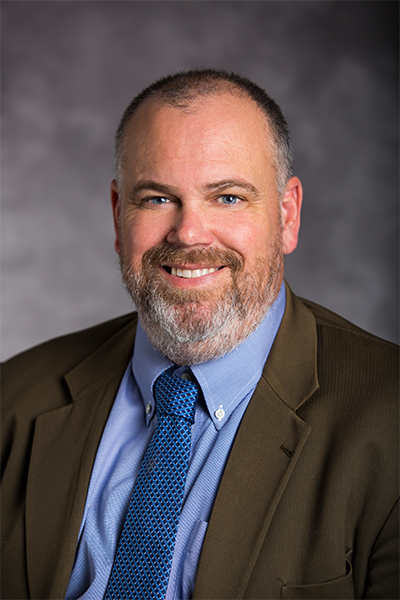 Dwight Raby
Dwight Raby

Director of facilities, Emory College
Raby, as director of facilities, has an integral role in achieving Emory’s sustainability goals. Despite the challenges of the pandemic and being both physically and geographically distanced, he is always willing to speak up, ask questions and guide Emory decision making to include sustainability considerations and outcomes. Raby has integrated his longtime, consistent commitment to Emory’s goals for sustainability and climate solutions into his daily work of problem solving, creating and supporting Emory College’s operations and programming.
